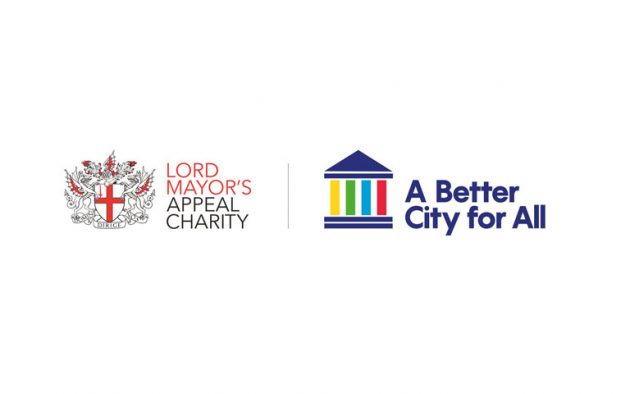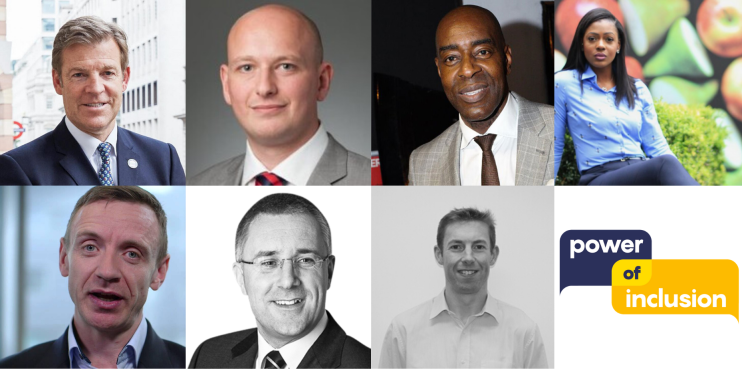
Power of Inclusion events continue to raise awareness

In the second of the popular Power of Inclusion events we continued to raise awareness of structural barriers and internal beliefs that stop those from diverse socioeconomic backgrounds progressing in their careers.
The session focussed on recruitment and what it looks like to hire the best talent there is irrespective of their background or route into the City. With those from working class backgrounds 80% less likely to make it into professional jobs we will be identified how traditional recruitment methods can create barriers for those from diverse socio-economic backgrounds.
We heard from businesses who have adapted recruitment methods to attract those from diverse socio-economic backgrounds to understand the benefits of social mobility to the City of London.
It was chaired by Tunde Banjoko OBE, founder and CEO of Making the Leap, and founder of the UK Social Mobility Awards. They are one of the few black led charitable organisations in the country.
We heard from Dan Robertson, chair of the Power of Inclusion Senior Leadership Forum, and he explained the two year social mobility strategy. The first year is about raising awareness of the challenges of the difficulties for those coming from underprivileged backgrounds, and understanding the barriers, so we know what to do about them. The second year will focus on what the long term impact will be and what we want to achieve. We will challenge businesses to think about the specific actions they can undertake.
The Rt Hon The Lord Mayor of the City of London, Alderman William Russell said that businesses with a diverse workforce reflect the business they serve, have access to untapped talent, and often perform better. Looking for specific CVs or degrees can limit the opportunities for both applicants and businesses.
It’s important to hone the ability to look beyond the face value of what you see, and see potential said Hannah Awonuga, Diversity and Inclusion Vice President and Barclays UK. She described her experience of going to an interview aged 16 dressed in a hoodie and jeans, having no idea of the protocol, and how recruiters need to see beyond the face value to identify potential, and be ready to support and hone their recruits.
John Craven, CEO of Upreach, acknowledges that there has been some progress, with entry to university for those from underprivileged backgrounds improving. However, they then become dominated by those from more advantaged backgrounds. Your family background influences the networks you form, the career knowledge you have, and the work experience you can gain. Upreach help people to improve their soft skills and confidence, so that they can reach their full potential. He spoke about the power of role models, which can help students be inspired to aim high, and explained ‘contextual recruitment’ which looks at how potential can be measured, rather than actual attainment.
Phil Sartain, UK Early Careers Lead at Aon, the morning’s sponsors, spoke about their recruitment process which focuses on strengths and skills rather than achievements. Their recruitment tools allow them to explore potential and what can be achieved with the right support, helping to make it a more equitable playing field. During his five years at Aon, Phil has driven a wide range of improvements to Aon’s Early Careers Attraction and Selection processes (including removing unconscious bias from selection processes and developing Aon’s Women of The Future and BAME Future Leaders programmes) to enhance Aon’s ability to identify and recruit talent from as diverse a pool as possible.
Tim Smith is a solicitor and partner at international law firm Bryan Cave Leighton Paisner LLP who are ranked in the top 10 of the Social Mobility Index and are a founding member of the Aspiring Solicitors Foundation. He took us through the firm’s thinking on diversity and inclusion and how they have improved diversity of trainee intake. As a talent driven business they need to ensure that they do not limit the talent of the organisation. The first thing to do is make sure they attract the interest of students, which can be difficult to do if they are not aware of the opportunities out there. It’s not about lowering standards, but thinking about the context and surrounding factors – candidates still need to be smart enough to do the job. It’s also important to look at the data, which can indicate things that instinct never can. Breaking down recruitment practices and analysing the process is key.
In the panel Q&A the speakers discussed whether bringing in a diverse workforce dilutes the quality and bring in less capable individuals, undermining the desire to be a meritocracy. It was acknowledged the impact that Covid-19 has had on attainment levels, widening the potential impact on long term achievement. The idea of having mandatory reporting was discussed, which might help make businesses be more accountable.
Hiring based on potential, motivation and attitude is not something that has been typical for many City industries, but there are clearly changes afoot. Potential rather than polish is what matters. This session was a powerful reminder of why creating more socially diverse and inclusive workplaces is better for all.
Next up is Culture and Belonging: creating a space to be oneself sponsored by Mayer Brown on Wednesday 15 July at 10.00am-11.30am. Please get in touch with us if you would like to know more by emailing inclusion@thelordmayorsappeal.org